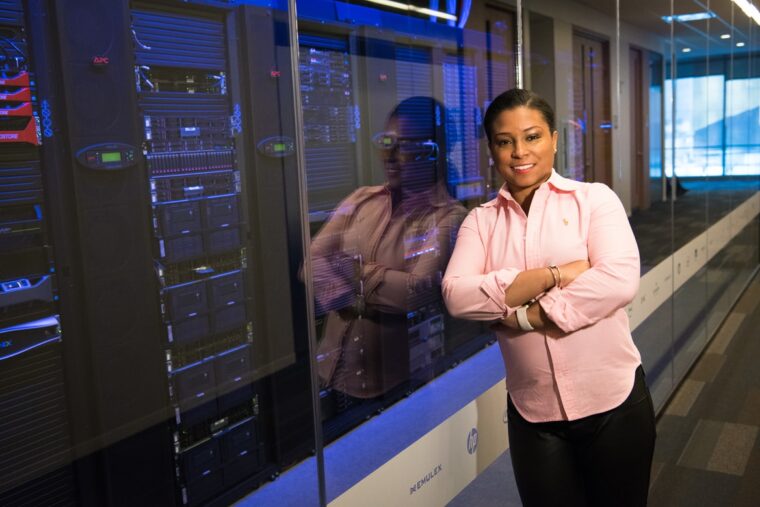Software and networking are some of the most booming industries nowadays. Owing to the plethora of ways and benefits it comes with, it is only bound to grow in the next coming decades. Networking is becoming more vast with the technological advances in recent years; people, devices, machines, companies, and even software are linked well.
With intent-based networking, enterprises are employing automation to widen and secure their brands. Furthermore, there are means to capitalize from these networking ways. But that is only possible when an enterprise has talented employees.
This is an excellent advancement for the people who use it for their benefit, like companies, enterprises and individuals working in the field. A dynamic field is bound to grow, which further increases the scope of the individuals and broadens their work horizons.
However, to utilize and use networking technology to its fullest, an individual with the proper skill set is required. That is where CCNP or Cisco Certified Network Professional certifications come in. For the preparation, SPOTO Cisco 350-401 ENCOR exam dumps questions are a great way to start.
What is CCNP ENCOR?

CCNP is an acronym for a Cisco Certified Network Professional. It is a certification developed to help improve the practical skill set of individuals in the field. Networking is an ever-changing field, and hence there are new developments made now and then.
The CCNP certification helps individuals upgrade not only their theoretical knowledge but also their practical networking knowledge.
Furthermore, the ENCOR is one of the exams in the certification, and it is related to implementing core enterprise networking technologies. It includes a plethora of them, such as infrastructure, virtualization, network quality check, security, and even automation.
In today’s world, companies need to hire professionals that are well aware of the use of enterprise-related technology because these technologies are capitalized by most industries today.
What does the ENCOR exam cover?
The syllabus of all the exams taken by CISCO can be found on their site. In this particular exam, the course lets an individual go over the operating and implementation of the latest high-end technologies required in the networking industry. This includes but are not limited to the following:

- Dual-Stack: This includes both the IPv4 and IPv6 architecture. This will constitute around 15 percent of the total exam questions.
- Virtualization: About 10 percent of the paper will have questions on this topic.
- Security: Only 20 percent of the questions in the exam will be related to security.
- Automation: Around 15 percent of the questions asked will be related to automation.
- Infrastructure: This is the most lengthy part of the paper and will have the most questions. It constitutes about 30 percent of the questions in the exam.
- Network Assurance: approximately 10 percent of the exam will be from this particular topic.
Details about the syllabus and topics
Generally, the topics involved and their respective percentages in the paper are mentioned above. However, for further clarity, a detailed description of all the topics is given below.

Architecture
In this part of the exams, you need to cover the different designing principles employed in the networking industry. You should be well aware of the working principles of the cisco sd-wan solution and know-how to differentiate between on-premises and cloud infrastructure employments—understanding the concepts of a wired and wireless QoS and distinguishing between hardware and software switching mechanisms.
Overall, the topic covers the above with detailed guidelines into these chapters provided in the PDF on their site.
Virtualization
This topic has a short outline and only requires you to study device virtualization technologies and be clear on the concepts of network virtualizations. Furthermore, configuring and verifying data path virtualization technology is also a part of the syllabus.
Infrastructure
This part of the assessment will assess you about the following:-
- Layer 2 will teach you to troubleshoot the static and dynamic trunking protocols and configure the EtherChannels. It will also help you clarify your knowledge about verifying standard Spanning Protocol used in them.
- Layer 3: This will help you compare routing concepts, configure and verify austere environments, including but not limited to summarization, filtering, and the like. It will also aid you in configuring and verifying between directly connected neighbors.
- Wireless: In this part of virtualization, you will be taught about AP nodes, Antenna types, Troubleshooting WLAN, and other Layer 1 concepts.
- IP services: These will comprise describing network time protocol, configuring and verifying NAT, configuring first-hop redundancy protocol, and finally letting you learn about multicast protocols.

Network Assurance
This is the smallest part of the exam, and around 10 percent of the exam will be from this part. This part helps you diagnose networking issues, configure and verify device monitoring, Netflow and flexible NetFlow, SPAN, IPSLA. In addition, it also enables you to clear out any confusion regarding the Cisco DNA Center.
Security
This part will help you configure and verify a device’s access to the control system, followed by configuring and verifying infrastructure security features like ACLs and CoPP. Finally, it will better help you understand API security and terms like threats defense, endpoint security, firewalls, etc.
Automation
This part only has 15 percent of the questions involved. It will help you interpret the essential elements of Python and its scripts. It will also help you construct valid JSON files and describe high-level principles and advantages of data modeling languages. One of the most popular ones is YANG
Furthermore, it will help you interpret API response codes and results in payload employing Cisco softwares, and finally help you compare agent and agentless orchestration tools such as chef, puppet and the like.
How long will the exam be?
The exam is only 120 minutes or 2 hours long and can be taken by signing up and registering for an online or onsite examination center. The average fee is around 400 dollars, but a candidate with the proper accreditation is highly valued because the certifications syllabus is based on the practical skill of implementation rather than mere theoretical knowledge.
